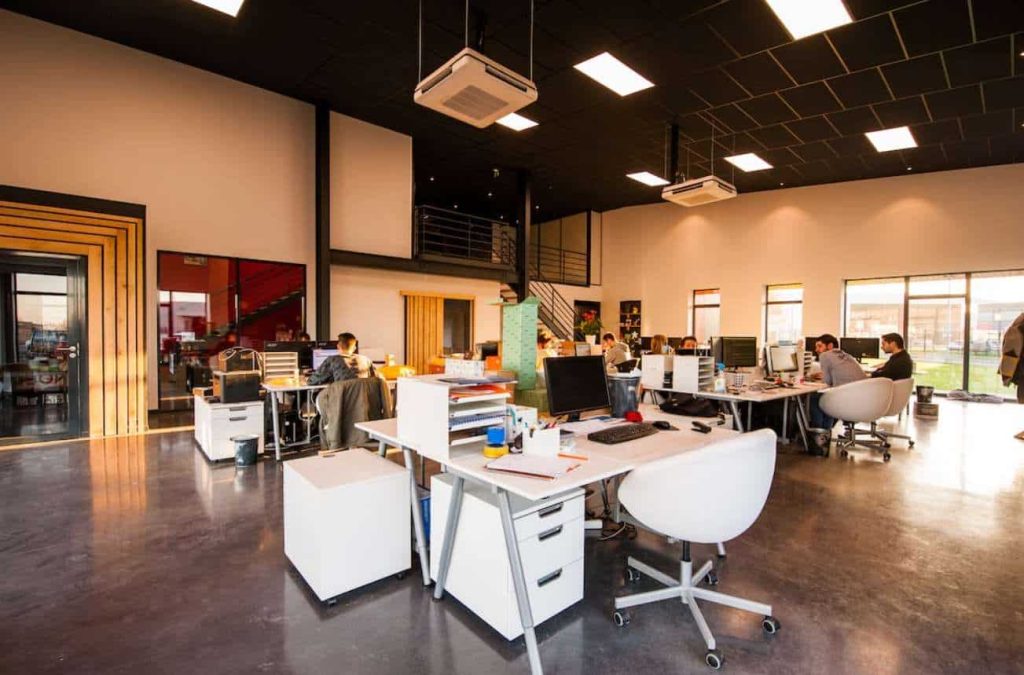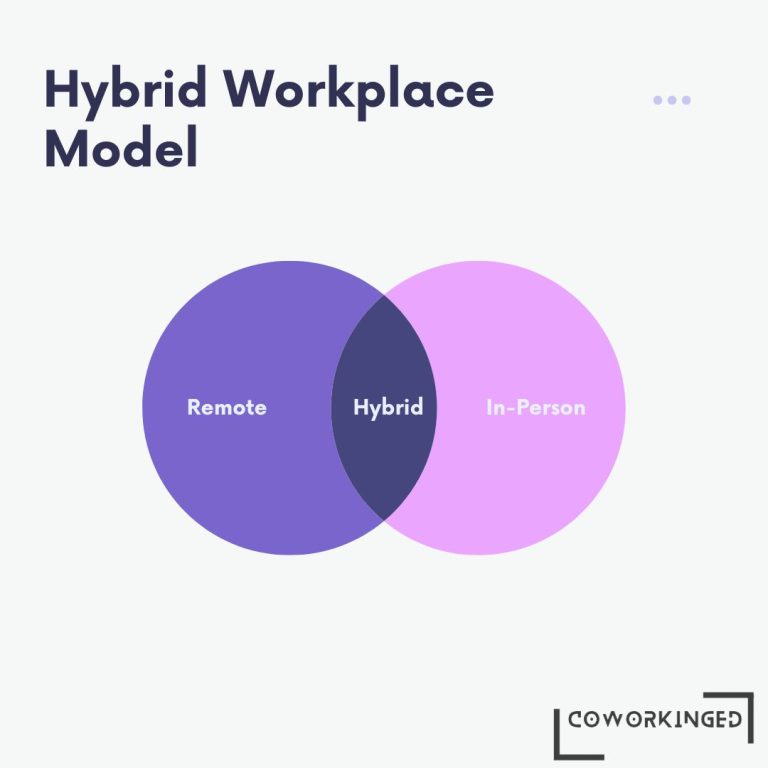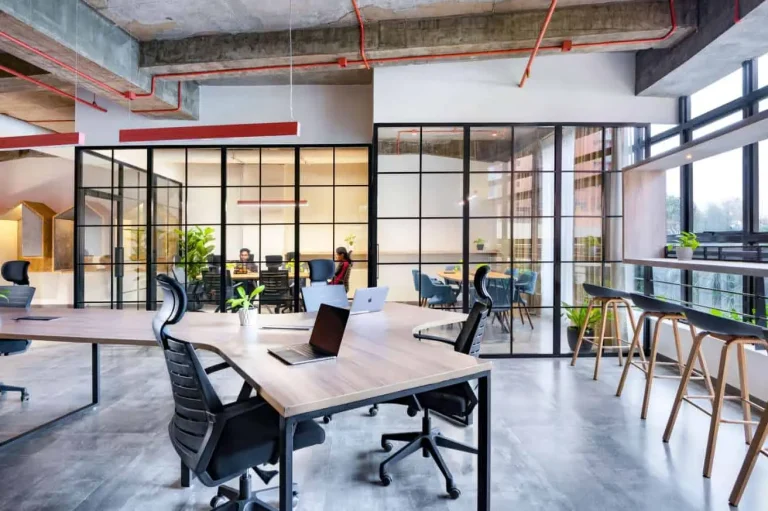What is Office Decentralization?
Office decentralization, a strategic reconfiguration of the workplace, is revolutionizing how companies operate in today’s dynamic business landscape. This innovative approach involves establishing satellite offices in closer proximity to employees’ residences, ushering in a wave of accessibility, flexibility, and convenience, while simultaneously reducing arduous commutes.
The COVID-19 pandemic accelerated the adoption of decentralized work practices, prompting companies to seek flexible workplace solutions as they navigate a path back to the office. Encouraging in-person collaboration remains paramount, but decentralization provides a safer means to achieve this goal.
Beyond the physical aspect, decentralization carries a broader significance in the corporate world. It represents a shift in how companies structure their operations, empowering local managers with greater decision-making authority, as opposed to the centralized model where control remains concentrated at the company’s headquarters. This shift away from centralization allows for more inclusive decision-making processes, enabling employees throughout the organization to have a voice in shaping the company’s direction.
Connected to these management paradigms is the hub-and-spoke model, a versatile concept whose interpretation varies depending on one’s vantage point. In the context of office decentralization, it signifies the establishment of a central headquarters complemented by strategically located satellite offices spread across cities or even entire countries. This model alleviates congestion at the central hub, as a growing number of employees take advantage of the satellite offices.
In this article, we will explore the physical decentralization of office space and delve into the benefits and challenges associated with this transformative approach. Within this framework, the hub-and-spoke model embodies a corporate structure built around a flexible working environment, featuring smaller central headquarters and satellite offices situated in proximity to employees’ residences.

Advantages of Office Decentralization
Streamlined Decision-Making
In a decentralized company, managers enjoy the autonomy to make decisions without constant top-down approval. This agility empowers teams to swiftly address unexpected challenges. Local managers, intimately familiar with their environment and team dynamics, can craft more effective solutions.
Enhanced Strategic Focus
Delegating day-to-day operations to satellite offices frees top-level executives from micromanagement. This newfound bandwidth allows them to concentrate on broader business strategies, growth initiatives, and executive-level responsibilities.
Effective Emergency Response
Centralized companies often struggle to respond swiftly to unforeseen events. While central management may implement protocols and training, they can’t anticipate every situation. In contrast, decentralized offices with on-site decision-makers can react promptly to emergencies, preventing costly disruptions that can paralyze centralized operations.
Managerial Skill Development
Decentralized offices foster autonomy and flexibility, providing trusted employees with opportunities to hone their management skills. Managers are encouraged to proactively address challenges, often finding innovative solutions that may not have been considered at the upper management level.
Efficient Internal Communication
The flatter organizational structure of decentralized offices promotes fluid communication. Information flows more freely within the company, reducing the need for constant escalation and delegation to reach the right individuals.
Promotion of Social Distancing
Office decentralization inherently promotes more socially distanced workplaces. By distributing employees across multiple flexible offices located closer to their homes, commute times are reduced, and fewer employees need to be present in the workplace simultaneously. This not only enhances safety but also aligns with evolving work trends favoring flexibility and employee well-being.
Disadvantages of Office Decentralization
Managerial Overload
The redistribution of responsibilities in a decentralized office can inadvertently burden satellite office managers with more accountability than they initially anticipated. They might find themselves performing tasks outside their intended scope. Maintaining a balanced workload among autonomous teams becomes crucial to prevent managerial burnout.
Reduced Organizational Control
As a company expands, founders and top-level executives inevitably face limitations in their ability to oversee every aspect of the organization. Transitioning to a hub-and-spoke model necessitates relinquishing a degree of control to trusted business partners or employees. This shift entails a significant adjustment, as it involves entrusting key decisions to those who have earned their trust.
Elevated Operational Costs:
While office decentralization offers advantages, it can also result in higher running costs. Centralizing certain functions like IT networks and payroll can lead to cost savings. However, placing high-level decision-makers and autonomous administrative teams in satellite offices may require hiring experienced managers and staff who command higher salaries, contributing to increased overhead expenses.
Interoffice Conflict of Interest
In a decentralized company, conflicts of interest between managers from different satellite offices can arise. Each manager advocates for their respective office’s interests, which can lead to differing approaches and strategies. Establishing effective conflict resolution processes becomes imperative to ensure alignment and cohesion across the organization.
It’s essential for organizations considering office decentralization to weigh these disadvantages against the benefits and implement strategies to mitigate potential challenges effectively.
FAQ about office decentralization
What is an example of a decentralized organization?
A decentralized organization example would be the fast-food giant McDonald’s. Instead of a single central authority making all the decisions for every McDonald’s restaurant worldwide, the company allows individual franchise owners to have a significant say in how they operate their specific locations. Each franchise owner has the freedom to make choices about menus, pricing, and even restaurant decor, as long as they adhere to the core McDonald’s brand standards. This decentralized approach gives franchisees a degree of autonomy while still aligning with the global brand’s guidelines.
Why would a company decentralize?
Companies decide to decentralize for several reasons. One common reason is when a company gets bigger and it becomes more efficient to let different offices or teams take care of their own tasks. Another situation is when external things, like changes in the market or unexpected events like a global pandemic, force the company to spread out responsibilities to different places.
Why is office decentralization important?
Office decentralization is vital as it enhances workplace agility and reduces employee commute times, promoting work-life balance. It empowers local managers for quicker decision-making and better emergency response. Additionally, it fosters skill development and smoother internal communication while aligning with evolving trends favoring flexible and distanced workspaces. This unique approach contributes to a more efficient and responsive work environment.






